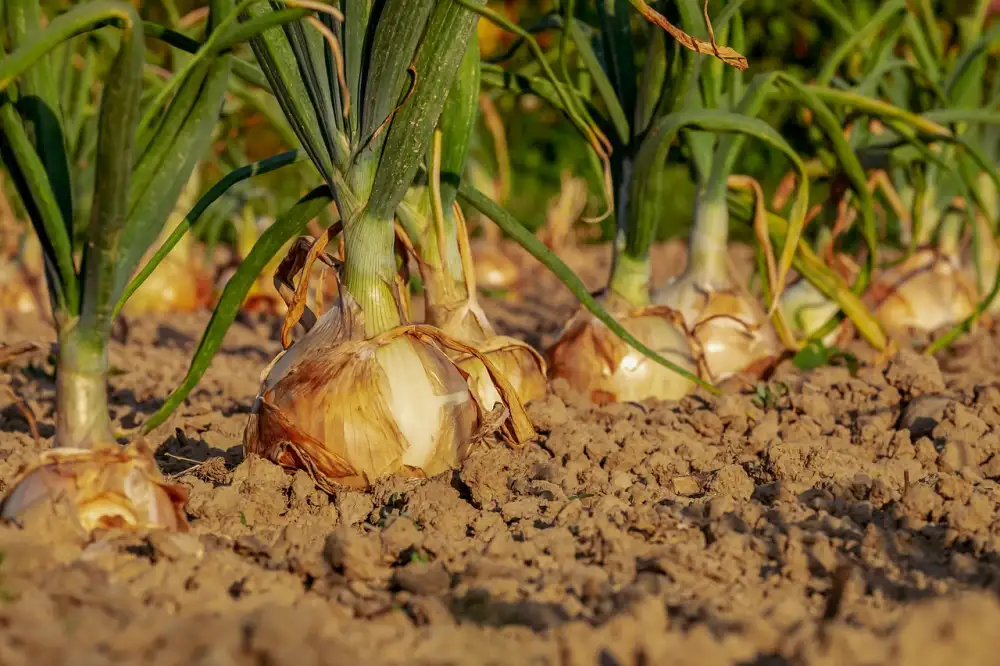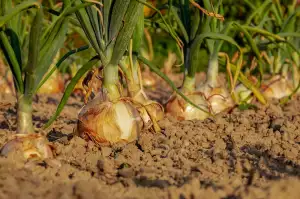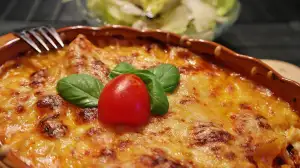Top Shallot Substitutes: Elevate Your Cooking with these Flavorful Alternatives

Shallots are a versatile ingredient commonly used in cooking to add depth and complexity to dishes. They belong to the allium family, alongside onions and garlic, and have a milder flavor profile compared to onions. Shallots are prized for their sweet and subtle taste, making them popular in various cuisines worldwide. They can be used raw in salads, dressings, or as a garnish, or cooked to enhance the flavors of soups, sauces, and stir-fries. Their unique flavor adds a sophisticated touch to dishes, making them a favorite among chefs and home cooks alike.
Reasons for Needing a Shallot Substitute
There are several reasons why you might need a shallot substitute in your cooking. One common reason is the unavailability of shallots in certain regions or during specific seasons. Shallots can also be more expensive than other alternatives, making them less budget-friendly. Additionally, some people may not enjoy the taste of shallots or may have allergies to them. In such cases, having a suitable substitute on hand can ensure that your dish still achieves a similar flavor profile without compromising on taste.
Top Shallot Substitutes:
**Top Shallot Substitutes:**
1. **Red Onions:** Red onions are a popular substitute for shallots due to their mild sweetness and crunch. They can be used in salads, salsas, or cooked dishes where shallots are called for.
2. **White Onions:** White onions have a sharper flavor compared to shallots but work well in dishes that require cooking. They can be sautéed or caramelized to provide a similar depth of flavor.
3. **Scallions:** Also known as green onions, scallions offer a milder taste than shallots but add a fresh and subtle onion flavor to dishes like stir-fries, soups, and salads.
4. **Leeks:** Leeks have a sweeter and more delicate flavor than shallots, making them a great substitute in recipes where a subtle onion taste is desired. They work well when sautéed or added to soups and stews.
5. **Garlic:** While garlic has a more pungent flavor than shallots, it can still be used as a substitute in many dishes. Use it sparingly to avoid overpowering other flavors in the dish.
1. Red Onions
Red onions are a popular shallot substitute due to their mild and sweet flavor profile. They can be used in place of shallots in various dishes, adding a similar depth of flavor. Red onions also provide a vibrant color to dishes, making them visually appealing. When substituting red onions for shallots, consider using them in raw dishes or lightly cooked recipes to maintain their crisp texture and subtle taste. Remember that red onions may have a slightly stronger flavor than shallots, so adjust the amount according to your preference.
2. White Onions
White onions are a versatile and widely available substitute for shallots in cooking. They have a milder flavor compared to red onions, making them a great option for dishes where you want a more subtle onion taste. When using white onions as a shallot substitute, consider using slightly less than the amount of shallots called for in the recipe to avoid overpowering the dish with onion flavor. White onions can be used raw or cooked, adding a crisp texture and mild sweetness to your dishes.
3. Scallions
Scallions, also known as green onions, are a fantastic shallot substitute due to their mild onion flavor with a hint of garlic. They can be used in both raw and cooked dishes to add a fresh and slightly pungent taste similar to shallots. To substitute scallions for shallots, use the white and light green parts for a milder flavor or include the dark green tops for a stronger onion taste. Chop them finely to mimic the texture of minced shallots in your recipes. Scallions work well in salads, stir-fries, soups, and as a garnish for various dishes.
4. Leeks
Leeks are a fantastic shallot substitute due to their mild and sweet flavor profile. They belong to the same family as onions and garlic, making them a suitable replacement in many dishes. To use leeks in place of shallots, simply slice them thinly and cook them until they are soft and translucent. Leeks work well in soups, stews, and sauces where their subtle onion-like taste can enhance the overall flavor of the dish. Remember to only use the white and light green parts of the leek as the dark green tops can be tough and fibrous.
5. Garlic
Garlic is a versatile ingredient that can serve as an excellent substitute for shallots in various recipes. It belongs to the same family as onions and shallots, providing a similar depth of flavor when cooked. To use garlic as a shallot substitute, finely mince or crush cloves to release their pungent aroma. Keep in mind that garlic has a stronger taste than shallots, so adjust the quantity based on personal preference. Additionally, be cautious when cooking garlic to avoid burning it, as this can result in a bitter taste.
Tips for Successfully Substituting Shallots
When substituting shallots in a recipe, keep in mind the following tips for successful results:
1. **Adjust Quantities:** Since shallots have a milder flavor compared to onions or garlic, you may need to adjust the quantity used in your dish.
2. **Consider Cooking Methods:** Different substitutes may require varying cooking times or methods. For example, garlic can burn easily, so it's best added later in the cooking process.
3. **Experiment with Combinations:** Mixing different substitutes like red onions and garlic can help mimic the complexity of shallot flavor.
4. **Finely Chop Ingredients:** To ensure even distribution of flavor, finely chop or mince your substitute ingredients before adding them to your dish.
5. **Taste as You Go:** Always taste your dish as you cook and adjust seasoning accordingly when using substitutes for shallots to achieve the desired flavor profile.
In conclusion, while shallots bring a unique flavor profile to dishes, there are several excellent substitutes available for when you find yourself without this ingredient. Red onions, white onions, scallions, leeks, and garlic can all be used to add depth and complexity to your cooking in place of shallots. Experiment with these alternatives to discover new and exciting flavors in your dishes. Remember to adjust quantities based on the substitute used and taste as you go to ensure a successful outcome. Happy cooking!
Published: 16. 04. 2024
Category: Food



